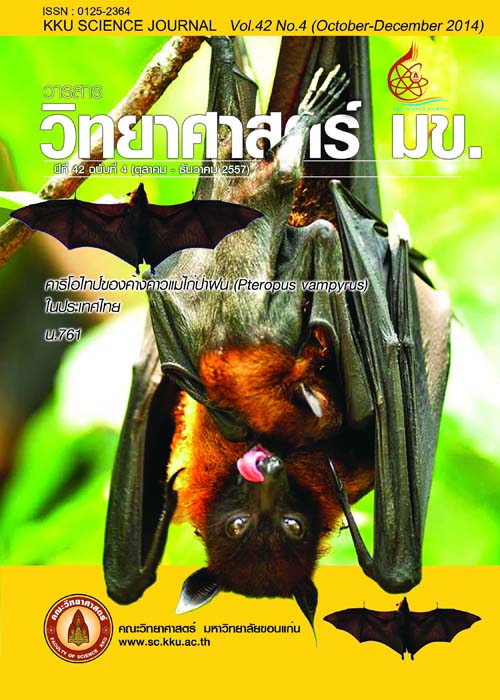In vitro Control of Fungal Contamination in Stored Garlic by Herbal Extracts and Microbial Antagonists
Main Article Content
Abstract
Biological control is an attractive alternative to synthetic chemicals, which may enter the food supply and cause serious environmental problems. Biological control, in particular the application of microbial antagonists and natural extracts, has thus been investigated as a means of controlling various phytopathogenic fungi. In vitro studies were carried out to evaluate the antifungal activity of three herbal extracts (clove, betel leaf and turmeric) against Aspergillus sp., Fusarium sp. and Penicillium sp., which are connected with diseases appearing post-harvest. These three phytopathogenic fungi were isolated from stored garlic in Lampang. The antagonistic potential agent of 13 isolates of Trichoderma spp. and of Bacillus subtilis against the same three fungi was also investigated using dual culture techniques. The results revealed that all herbal extracts showed strong antifungal activity. Clove extract at a concentration of 5 and 10 mg/ml was the most effective, completely inhibiting the growth of all tested fungi. Most of the
Trichoderma isolates showed moderate to high antagonistic activity with regard to Fusarium sp., with a 35-76 % reduction in colony growth, while they exhibited lower potential when applied to Aspergillus sp. and Penicillium sp. The efficacy of B. subtilis in inhibiting fungal growth on Aspergillus sp. is higher than on Fusarium sp. and Penicillium sp.
Article Details

This work is licensed under a Creative Commons Attribution-NonCommercial-NoDerivatives 4.0 International License.


